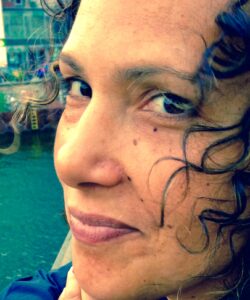How did The Other Mother evolve?
I’ve had this story in the works for many years, more than I’d like to admit. It’s a world I know intimately, in terms of the setting and relationship dynamics, yet it was mysterious as well, and I had to grow up and face some things in my past before I could write the book. Or at least, write it the way I wanted to. I had to forgive myself and others, in order to see things clearly: the motivations and the intentions, the selfishness of human beings, and of course, the profound love.
I always like a good challenge, so that came with the structure. Moving back in forth in time, switching between characters, all those ideas came as I clarified the story. I wanted to tell the truth about these characters, and that meant no one was going to be completely innocent; it just doesn’t work that way in a family. At least not my family. But most importantly, I wanted them to be human, to be flawed and relatable. I wanted them to be real people, worthy of love, and capable of redemption.
Did you always want to be a writer?
As a child, I didn’t have the audacity to want to be a writer. My father was a poet, but that didn’t immediately translate to me as something I should do. I was lucky enough to grow up around writers, and I admired them, but I didn’t want to be them—not right away. At different times I wanted to be a truck driver, a judge and an architect. But writing was something I always loved; it felt like an intrinsic part of me. I began by telling stories that I would want to read, and as I got older, I kept coming back to it—or rather, it kept calling me back.
As a teenager, I used to try to imagine a life with a real job, like being a fireman or a librarian, and I would always start to imagine what could happen, how I could make it more interesting, and the next thing I knew I was outlining a story about someone else who was living that life. That was a pretty clear sign that I needed my job to be in a creative field, because I would use my imagination whether or not it was necessary.
What inspired you to write This Side of Providence?
I wanted to tell a different type of family story, one that reflected the community I lived in and the people I knew—stories I didn’t see in a lot of literary fiction I was reading at the time—so that inspired me to sit down and write this book.
I also felt compelled to answer a simple question: can an addict be a good mother? (Which of course isn’t a simple question.) This novel is the answer I came up with, and it’s complex, so I needed a lot of characters to carry it. I wanted to use a lot of voices—not just the mother’s—to tell this story, to make it fair, in a sense, and balanced—ultimately, to make it feel real.
What are you working on now?
I’m juggling a lot of projects right now, which is actually how I prefer it. I’m working on a couple of scripts—including an adaptation of a friend’s memoir and an original pilot—and of course, I have another novel idea in the works, but I’m not talking about it just yet. I’m also focusing on the launch of The Other Mother, which is really exciting.
The publishing landscape keeps changing, and I’m eager to grow with it, to keep learning how to do it better. I’m not a natural at self-promotion. Managing the social media aspect of publishing is a whole new challenge, but I must admit it’s kind of fun to get the immediate gratification. Sometimes it feels like my readers are in the same room with me, even sitting right next to me, and that makes the world seem so much smaller. I love that about technology—when it can bring people together, can unify, instead of divide.
